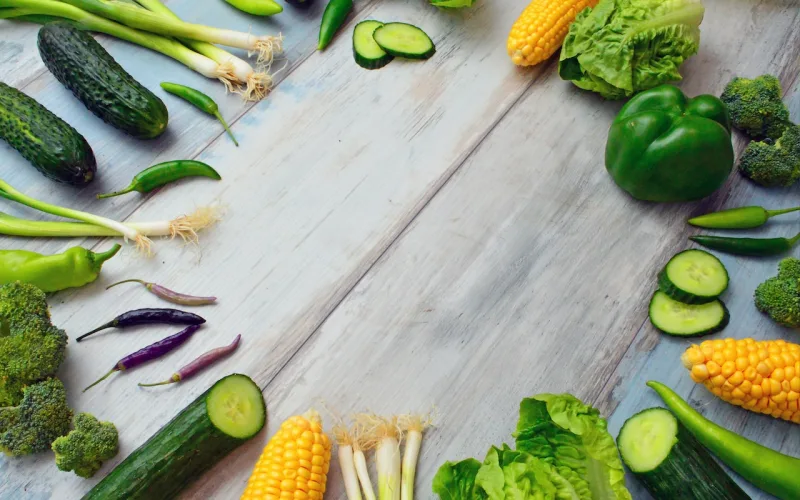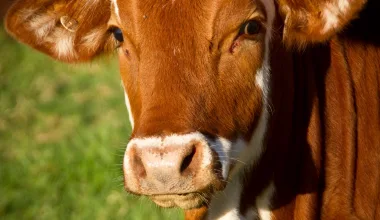Last Updated on May 14, 2024 by Ecologica Life
Organic foods are now commonplace in many supermarkets. They are marketed generally as healthier. However these products generally come at an increased price. So, are they really worth is?
What is Organic Food?
This is not a straightforward question to answer. Especially because organic food labels can mean different things in different countries.
Organic Products in the EU
The EU’s definition of organic farming is a sustainable agricultural system respecting the environment and animal welfare, but also includes all other stages of the food supply chain.
Key Principals About Organic Farming in the EU
- The use of chemical pesticides and synthetic fertilisers is banned.
- Antibiotics are severely restricted.
- Genetically Modified Organisms (GMOs) are not allowed.
- Crops are rotated.

The EU consumed 37.4 billion euros of organic produce in 2018. The USA consumed 40.6 billion euros and China 8.1 billion euros. In 2020 the European commission unveiled plans to promote organic farming and reduce pesticide use by half.
Organic Food in the US
What can be labelled as organic in the US is organised by the U.S. Department of Agriculture (USDA). Organic food in the US is grown on soil free of prohibited substances for three years prior to harvesting.
As for organic meat, organic farmers must allow animals to be able to graze on pasture. Organic meat must be fed 100% organic feed and animals grown in organic farms cannot be administered antibiotics or hormones.
Since 1989, the EU only permits the minimal amount of hormones to be used in farm animals, organic or not.
Is Organic Food Healthier?
This again depends on where you are buying your organic food. Organic food sold in the EU is generally produced without the use of synthetic fertilizers, pesticides, or artificial chemicals. It is grown using natural methods such as crop rotation, composting, and natural pest control. Organic food is also free from genetically modified organisms (GMOs).
Organic meat and animal products come from animals that have been fed organic feed, live on organic land and have been raised without routine antibiotics. In the U.S. organic meat also means free from hormone treatment.
According to studies, organic milk has a slightly higher percentage of polyunsaturated omega 3 and 6 fatty acids, as well as vitamin E and iron. These vitamins are crucial for brain function, vision, and children’s growth and development.
Aside from these differences though organic food typically has the same level of nutrients as its non-organic counterpart. The key difference is the farming methods used.
In general, experts agree that more research is needed to determine if eating organic food is healthier. Some research has identified significant differences in the hormone and immune systems between organic and non-organic fed animals.
According to Ewa Rembialkowska from the Warsaw University of Life Sciences, studies with animals fed organic food show better fertility levels, lower mortality rates and better immune response. It seems that given the choice, rats opt more often for organic feed.
One systematic review concluded that over a long period of time, people may have reduced incidence of infertility, birth defects, allergies, high BMI and non-Hodgkin lymphoma. These findings will need to be supported with further studies, but the observations do raise questions.
Why is Organic Food More Expensive
Higher prices are mostly due to the fact that farmers must carefully monitor their farming practices, these are typically more expensive and produce less than conventional agriculture.
Pesticides must be replaced with physical, mechanical, and biological controls for the management of pests, weeds, and diseases.
Farm Animals
The use of steroids in farm animals is legal in many countries, including the Unites States, Canada, China, Argentina, Australia, and other major meat-producing countries.
In the European Union, using anabolic steroids to fatten animals is not allowed.
In the U.S, animals not raised organically are often given steroids to grow more meat and hormones to produce more milk.
Is Organic Farming Better for The Environment?
Unfortunately, this is not a clearcut answer and scientists are heavily discussing this topic. According to soilassociation.org, Organic agriculture has multiple benefits:
- Lower emissions and lower energy use than conventional farming.
- Lower risk of pollution in soils and waterways due to less pesticide residues.
- Organic farmed soil captures 25% more carbon.
Unfortunately, organic farming requires a lot more land. This means that to feed everybody, we may have to rethink how we farm as the demand for organic farming increases. Some technological solutions such as vertical farming may provide some solutions to this.

 Kaine Moreno McDaid – Scientist, Researcher & Science Communicator
I am a biomedical scientist and researcher with a passion for scientific discovery and knowledge-sharing. With experience in immunology and public health research, I have recently co-authored a study on COVID-19 and its dietary impacts. Now, I apply my research expertise and analytical skills to creating insightful, science-backed environmental content.
Through my writing, I aim to bridge the gap between science and everyday life, empowering people with accurate, well-researched information to make informed and sustainable choices. I believe that truth has immense value, and we have a responsibility to explore, discuss, and share it.
Kaine Moreno McDaid – Scientist, Researcher & Science Communicator
I am a biomedical scientist and researcher with a passion for scientific discovery and knowledge-sharing. With experience in immunology and public health research, I have recently co-authored a study on COVID-19 and its dietary impacts. Now, I apply my research expertise and analytical skills to creating insightful, science-backed environmental content.
Through my writing, I aim to bridge the gap between science and everyday life, empowering people with accurate, well-researched information to make informed and sustainable choices. I believe that truth has immense value, and we have a responsibility to explore, discuss, and share it.
 Interests: Biomedical Science | Immunology | Nutrition | Environmental Sustainability | Scientific Communication
Interests: Biomedical Science | Immunology | Nutrition | Environmental Sustainability | Scientific Communication 






